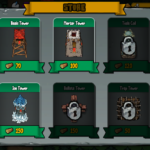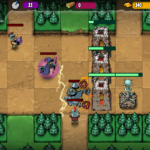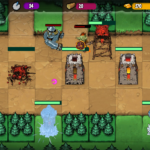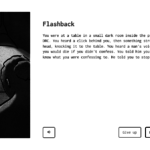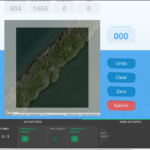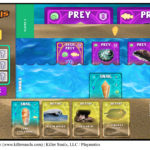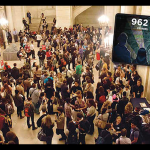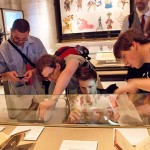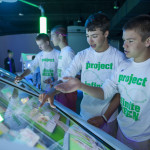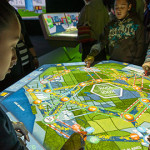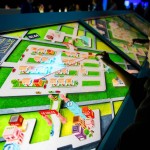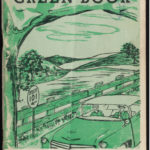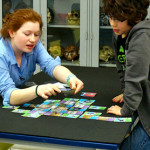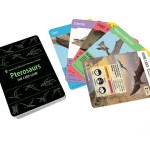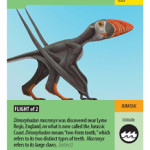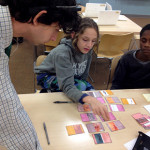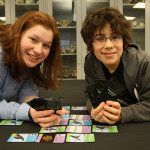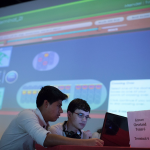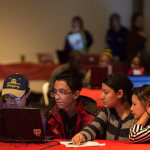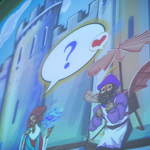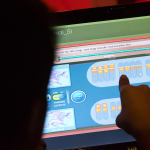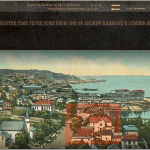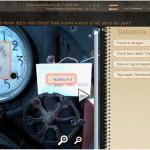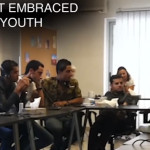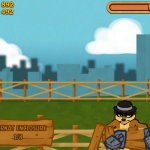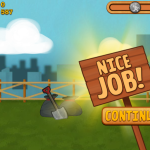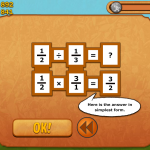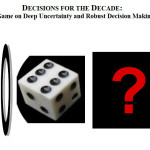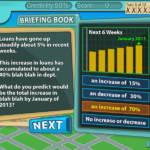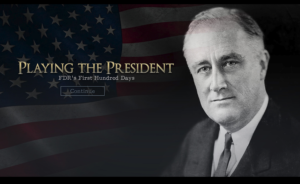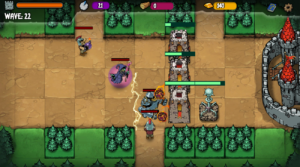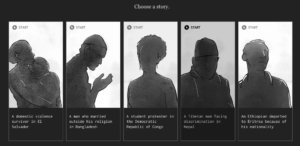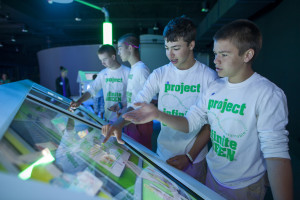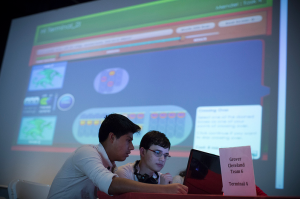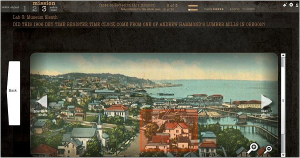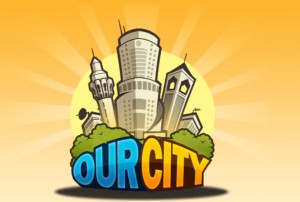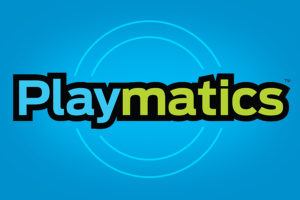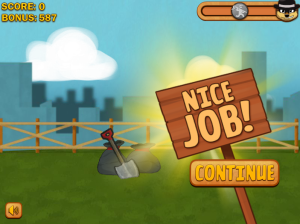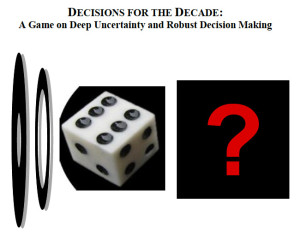Education & Serious Games

Playmatics is a leader in innovation, serving players, institutions, museums, corporations and communities that are directly involved in impact games and serious games for learning, education and training. We combine product creation and commercialization know-how with the freshest design thinking.
Our Work in Education and Serious Games
To see our entire portfolio, visit the works page.

Playing the President: FDR’s First Hundred Days
Created as both an onsite installation and web game experience, Playing the President: FDR’s First Hundred Days is an educational game that puts you in the seat of Franklin Delano Roosevelt during the historical critical first 100 days of his presidency. Developed with students at the New York Historical Society, the game presents you with six policies decisions that FDR had to make alongside contemporary voices arguing for different positions. Players can explore how different decisions created loyalties and hostilities with different critical constituencies and how presidents deal with crises with the powers and limitations of their office.
Platform(s): Web, Museum Installation
Partners: New York Historical Society, New York Historic Teen Leader Program
Playmatics Role: Game design, programming, art, writing
You can see the installation as part of the New York Historical Society’s Meet the Presidents and the Oval Office at the New York Historical Society or check out the game on the web here.

Revolutionary Choices
Created in collaboration with the Society of the Cincinnati, Revolutionary Choices is a game that allows you to explore the military, political and art history of the American Revolutionary War. In Revolutionary Choices players must manage the entire Revolutionary War from start-to-finish, guiding decisions in Congress, commanding the Continental Army, balancing the interests of individual regions, while also fostering liberty, and unity.
Platform(s): Web, iOS, Android
Partners: Ben Sawyer, Society of the Cincinnati
Playmatics Role:
Game design, programming, visual design, sound design, writing
Find out more about the game at the American Revolution Institute.

Neuroscience Game Experiment with University of Geneva
Playmatics has teamed up with the University of Geneva and Dr. Daphne Bavelier and Dr. C. Shawn Green to create a game-based intervention as part of a neuroscience research project. Called “Robbin’ Goblins”, the game uses a tower defense mechanic to encourage participation in an experimental exercise. The game will go into trials in the near future.
More information coming soon about this collaboration and about Robbin’ Goblins.

ProPublica: The Award-Winning The Waiting Game
The Waiting Game is an interactive narrative experience, created by Playmatics in partnership with ProPublica and WNYC. Take the role of an asylum seeker, and live through every day of their lives from the moment they decide to flee their country to the moment their case is decided.
Winner of the Society for News Design’s Bronze Malofiej Award for best infographics in media from around the world. Finalist for NLA Punch Sulzberger Award for Innovative Storytelling.
Platform(s): Web, iOS, Android
Partners: ProPublica, WNYC
Playmatics Role:
Concept creation, game and interaction design, programming, visual design, writing
Play The Waiting Game at ProPublica.org now.

Scripps: Science Game Lab
Ready. Set. Explore.
Want to help science? Enjoy learning or playing games? Science Game Lab is a new portal for citizen science projects in need of your assistance, games with a purpose, and educational games in Science, Technology, Engineering, and Mathematics (STEM).
Platform(s): Web
Partners: Scripps
Playmatics Role:
gamification design

Killer Snails mobile (National Science Foundation)
Platform(s): Web, iOS, Android
Partner(s): Killer Snails
Playmatics Role:
Design and Development

New York Public Library: Find the Future
Find the Future: The Game is a pioneering, interactive experience created especially for NYPL’s Centennial by famed game designer Jane McGonigal, with Natron Baxter and Playmatics. Through a once-in-a-lifetime, overnight adventure played inside the Stephen A. Schwarzman Building, and an ongoing online game, Find the Future: The Game combines real-world missions with virtual clues and online collaboration — all inspired by 100 works from the amazing collections of The New York Public Library.
Platform(s):Real-world, iOS, Android
Partner(s): New York Public Library
Playmatics Role:
Design and development

Future Energy Chicago
You have the power to change Chicago’s energy future! The challenge for our future is how to produce the energy we need while balancing the trade-offs, such as cost and the impact on the environment. Future Energy Chicago, MSI’s newest permanent exhibition, turns this challenge into a fast-paced simulation game where you compete to make the energy choices that create a more sustainable city … and generate a lot of fun.
Platform(s): Museum installation
Partner(s): Museum of Science and Industry, Potion Design
Playmatics Role:
Educational development and design thinking.

Traveling While Black
Playmatics is responsible for the gaming component of this seminal project by Oscar Award-Winning filmmaker Roger Ross Williams.
Traveling While Black is a transmedia project currently under development that explores the often-harrowing landscapes African Americans traversed during the pre-civil rights era to highlight the urgent need to remember this past and dialogue about the challenges minority travelers still face today.
Platform(s): Web, iOS, Android
Partners: Roger Ross Williams, Bonnie Nelson Schwartz , Lina Srivastava, Tribeca Interactive
Playmatics Role:
Interactive design

American Museum of Natural History: Pterosaurs the Card Game
This companion app for Pterosaurs: The Card Game explores amazing ancient reptiles and their food chains. When triggered by cards from the Pterosaurs deck, the app reveals animations of pterosaurs walking, flying, and more.
Pterosaurs were flying reptiles that lived during the age of dinosaurs—and the first vertebrates to fly under their own power. This app and the analog card game draw on images and information from the 2014 special exhibition Pterosaurs: Flight in the Age of Dinosaurs.
Use the Pterosaurs: The Card Game app with cards that can be downloaded for free here to reveal animations and 3D models for several species. The analog Pterosaurs: The Card Game is based on the biodiversity card game Phylo (phylogame.org) and was developed by teenagers in the Museum’s #scienceFTW program with game designer Nick Fortugno.
Platform(s): Board/Card game
Partners: American Museum of Natural History
Playmatics Role:
Design and development.

Genigames
Dragons breathe fire and hoard treasures, but can they help students become more interested in genetics? SciPlay, in collaboration with the Concord Consortium and Michigan State University, is researching this question by modifying the Geniverse software, which students use to breed fictitious dragons and solve genetic problems in a virtual lab. The National Science Foundation (REESE program) funded project, called GeniGames, will study whether adding game-based design elements to PBS science curricula can improve students’ motivation, engagement and learning.
GeniGames will add three gaming elements to Concord Consortium’s dragon breeding software: a strong story line narrative, a quantifiable goal that students can work towards, and a team competition feature. GeniGames will test the extent to which adding each of these game-based design elements to a PBS curriculum enhances students’ engagement, while still supporting the learning that has been documented with PBS curricula. The research will take place in New York City high school classrooms studying genetics and at the New York Hall of Science, and will include students from groups underrepresented in science and engineering careers. An advisory committee consisting of experts in genetics, the learning sciences, cognitive science, and gaming will evaluate the results of the project.
You can read the abstract here.
Although the project will not be completed until 2014, researchers theorize that bridging formal school curriculums with the informal learning environment of the gaming world will increase students’ motivation, which in turn will increase their learning. Plus, dragons will be able to add another skill to their resume: breathing new life into genetics education.
Platform(s): Web games
Playmatics Role:
Educational development and design thinking.

History Detectives Laboratory
History Detectives Laboratory (HD Lab) is an online educational game inspired by the PBS television show History Detectives.
HD Lab is free for classroom use by middle school students. It has two main components: Game Modules and an Open Investigation. In the Game Modules the student plays the role of ‘detective,’ and investigates a mystery surrounding an object. The Modules also help prepare students for their own more free-form ’Open Investigation’ of an object they are curious about, and which may have a connection to U.S. history. The Open Investigation can also be used independently of the Modules. The HD Lab website’s educational resources support the Modules and the Open Investigation. Many of the lesson plans and resources can also be used independently of the Modules and Open Investigation. We have created two Modules – The Case of the Curious Clock, and The Case of the Hooked Hawaiian Knife. They are aligned with Historical Thinking and Common Core State Standards and support curriculum in two historical eras: The New Immigrants (1880 – 1920) and the Emergence of Modern America (1890 – 1930s).
Platform(s): Web
Partner(s): LionTV, Corporation for Public Broadcasting
Playmatics Role:
Design and Full Development

Our City with USAID
Through a one-of-a-kind serious game, players will engage in productive city-building experiences with opportunities to engage both on and offline. “Our City” will focus on exploring how social media, and more importantly serious social games, can engage and empower youth to understand how they can participate in building a vibrant city. The IYCE pilot game will develop an understanding of the key elements in building a vibrant city and offer players the opportunity to accelerate their advancement in the game both through online and offline, real world community engagements. Real-world experiences will be facilitated by strategic partnerships with local youth-focused NGOs. Players will learn to make decisions around an integrated on and offline engaging game experience, developing a community-oriented perspective to make a difference in their digital and real-world communities. Playmatics contributed design and product development services, including on-site visits.
Platform(s): Facebook
Partner(s): Nancy Schwartzman, Jessica Devaney
Playmatics Role:
Game design services.

Confidential Project with Nancy Schwartzmann
Top secret game.
Platform(s): Real-world, web, iOS, Android
Partners:Nancy Schwartzman, Jessica Devaney
Playmatics Role:
Design and development.

Meerkatcher Math Game
The rascally meerkat gang has ruined the zoo’s fences. Add, Subtract, Multiply, and Divide fractions to fix the fences and catch those ‘kats! In conjunction with Lion Television and PBS, Playmatics has created Meerkatcher to help students with their common core math skills!
Platform(s): Web
Partner(s): Lion Television, PBS
Playmatics Role:
Design and development.

Decisions for a Decade with USAID
n Decisions for the Decade, each participant is a provincial governor and small teams make up the governing body of a nation. Central to the game experience is that participants do not initially recognize the likelihood of disasters as deeply uncertain and, like many decision makers in the real world, plan for the most likely disaster scenarios rather than for extreme events that can bring devastating outcomes. All participants begin the game with a budget of ten beans (for a ten-year cycle), and seek to maximize the prosperity of their province and country by investing their budget in long-term development. However, floods and droughts can threaten this investment. The threat of extreme events is initially depicted by a six-sided die, introduced to players as the probability distribution function of precipitation based on the past record (a 1 represents a drought, a 6 a flood). Governors may choose to allocate a portion of their budget to disaster protection to avoid humanitarian crises – investing one bean offers protection against one extreme event. If each extreme event that occurs during ten rolls of the dice is matched by a corresponding protection investment, their development investment leads to prosperity, and the player will accrue Prosperity Points. However, if they incur a crisis (for example more floods occur than flood protection beans invested) all of their development investment for the decade is diverted to crisis management, and the prosperity of their province does not increase. After three ten-year cycles, the winning provinces are those that have accrued the most Prosperity Points while having simultaneously avoided crises. Importantly, unknown to the players, the object representing rainfall is changed at the start of each new decade: the six-sided die is first replaced by an eight-sided die (a flood occurs if the roll is 6 or more: i.e. a probability of 3/8, or more than double the original probability of 1/6); and then by a truncated cone that is nearly impossible to understand in terms of the chances of falling on the big base (representing floods) or the small base (representing droughts) vs. landing on its side (good conditions). As with actual climate projections for much of the world, different players formulate very different interpretations of whether future conditions are likely to become wetter or drier, and as a team they have a chance to reflect on how to manage the emergent deep uncertainty. The game offers participants robust options, which are insensitive to the probabilities of disasters, but which also have a lower payout than would an optimized investment if these probabilities were known. In other words, the robust options work well no matter what the disaster regime, but they may not be the best in any single predicted regime. The game further invites urgency, as scientific information changes during game play, and conflict, as certain decisions require consensus in the face of diverging beliefs about the scientific information.






